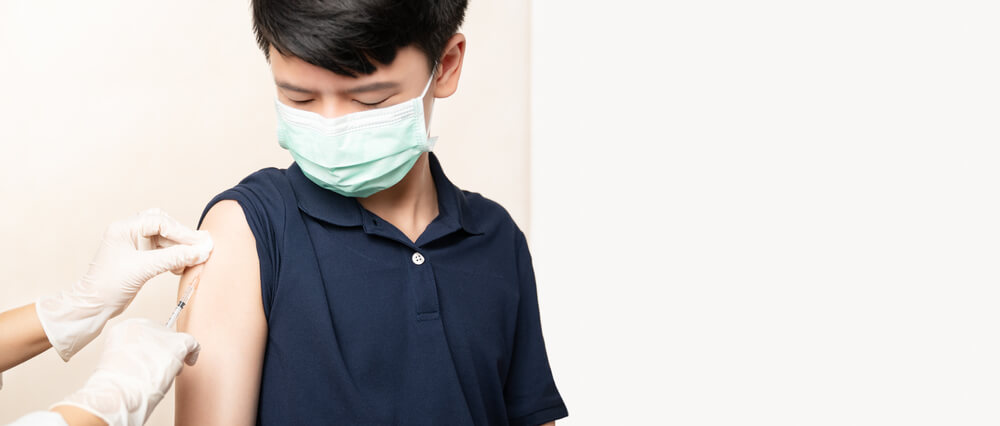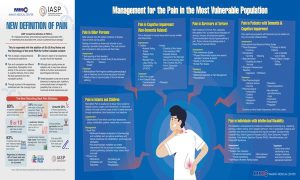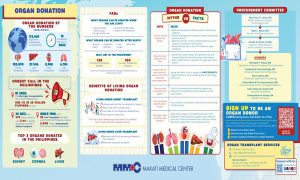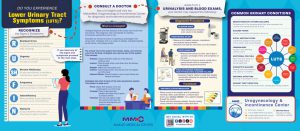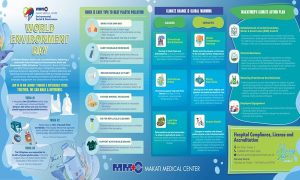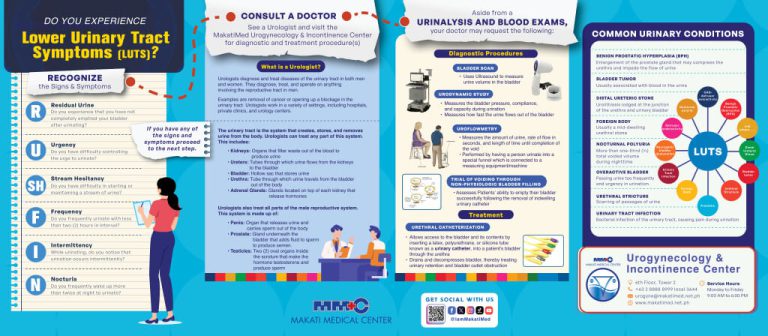More than a year and a half after the World Health Organization (WHO) declared COVID-19 a pandemic, the world is still battling against an influx of coronavirus cases as emerging strains continue to ravage countries.
Today, the Delta variant is the dominant SARS-CoV-2 mutation globally, infecting even fully vaccinated people. This news on the more lethal and transmittable strain raises a pressing issue on the safety of children and teens who were not cleared to get the jab until only recently.
Emergency Approval for Children
While the younger demographic has recorded fewer COVID-19 cases than adults, they can still be infected by the virus, get sick, and spread it to others.
More than a year and a half after the World Health Organization (WHO) declared COVID-19 a pandemic, the world is still battling against an influx of coronavirus cases as emerging strains continue to ravage countries.
Today, the Delta variant is the dominant SARS-CoV-2 mutation globally, infecting even fully vaccinated people. This news on the more lethal and transmittable strain raises a pressing issue on the safety of children and teens who were not cleared to get the jab until only recently.
Emergency Approval for Children
While the younger demographic has recorded fewer COVID-19 cases than adults, they can still be infected by the virus, get sick, and spread it to others.
Because of this, the U.S. Food and Drug Administration (FDA) and Centers for Disease Control (CDC) granted the Pfizer-BioNTech COVID-19 vaccine emergency use authorization (EUA) for children aged 12 years and older to protect them against contracting, getting hospitalized, and spreading the disease.
12 Tips to Follow When Having Your Children Vaccinated for COVID-19
In the Philippines, the Department of Health (DOH) has given the green light on the distribution of COVID-19 vaccines for minors aged 12 to 17 with underlying medical conditions or comorbidities. Here are some helpful pointers to consider for parents who want to know what to do before, during, and after their kid’s vaccination.
Before getting the vaccine
1. Explain the reasons for getting vaccinated
Children need to understand why they have to deal with the needle to ease any fears during the appointment. Talk to them about how the COVID-19 vaccine for children is essential to keep them and others healthy against the virus and help end the pandemic. If they have any questions, answer in kid-friendly responses based only on facts.
2. Avoid making false promises
Aside from discussing the importance of taking the vaccine, parents also have to set their kid’s expectations about the shot itself. Be honest and explain the possible side effects and how it can sting just a little. However, be mindful not to go overboard to the extent of scaring them off. Reassure them that, just like their other vaccines, it is something they can deal with easily.
3. Prepare their favorites
Children tend to get agitated or nervous at random parts of the day, and a trip to get a vaccine might not be an exception to this. If it ever happens, make sure to pack their favorite book or gaming device to keep them comfortable during the entire process. The more soothing distractions you can think of, the better!
4. Plan a reward
Kids love prizes! Prepare them a gift so they are motivated to have their vaccine. While it does not have to be expensive, it has to be one that they will surely look forward to once their doses are complete.
During vaccination
5. Bring snacks and water
Depending on the pre-vaccination checklist or the queue at the vaccination site, getting a COVID-19 shot for minors can take minutes to hours. Either way, having snacks and a bottle of water on hand can help lessen or prevent the child’s restlessness while waiting for their turn. To keep safe, have a little snack before entering the vaccination site and take quick sips at the line for hydration.
6. Play or read together
As a diversion for the injection, bring out the child’s favorite things and distract them through their favorite games on mobile or handheld devices. You can also both bring books and read together to pass the time. If they have a specific item that helps calm their nerves, hand it to them for instant comfort and support.
7. Practice breathing exercises
If the kid has an intense fear of needles, parents should coach them on breathing exercises to calm their nerves. “Blowing out” the pain is as easy as taking three to five deep inhales through the nose and exhaling through the mouth. Remember to keep masks on at all times.
8. Commend their bravery
Whether the young patient is excited or terrified of the shot, support them with hugs and encouraging comments at all times. Celebrate their efforts throughout the vaccination process, and do not forget to give them a pat on the back after.
After getting the dose
9. Stay put for observation
Just as they monitor adults, healthcare providers need to observe younger individuals for about 15 to 30 minutes after receiving their vaccine to ensure that they do not have any immediate reaction to the shot. Should any unusual side effects occur, reach out to a medical professional right away.
10. Prepare for possible side effects
Pain at the injection site, fever, headache, and tiredness are common reactions children can experience after the dose. Relieve these symptoms by giving them doctor-prescribed medicines. Preparing a cool sponge bath can also help cool their temperature down and reduce the discomforts of any side effects. Make sure to let them rest and hydrate.
11. Prepare for the second dose
Most COVID-19 vaccines come in two (2) doses at varying intervals after the first, depending on the brand. Parents should take note of the schedule for the next shot written on their child’s vaccination card. Like the first time, preparations need to be made before, during, and after the vaccination.
12. Continue following health protocols
While vaccines work as an added layer of protection against COVID-19’s wide range of symptoms and severity, a fully vaccinated individual can still contract the virus.
Keep children safe by following minimum health protocols such as wearing a mask, social distancing for at least two meters, regularly washing and sanitizing hands, and staying indoors as much as possible.
Get Children Vaccinated Against COVID-19
As of October, there have been at least 53.8 million doses administered in the Philippines, enough to have catered to about 20.9% of the country’s population. While those numbers show clear progress in the fight against the deadly virus, its emerging variants continue to threaten the health and safety of many across all countries and demographics.
If and when possible, get children vaccinated. Together, prevent the further spread of COVID-19 and end this pandemic by strictly adhering to minimum health guidelines and getting vaccinated to achieve herd immunity. For more vaccination updates, infectious disease and COVID-19 -related concerns, pediatric services, and world-class healthcare, reach out to Makati Medical Center today!

